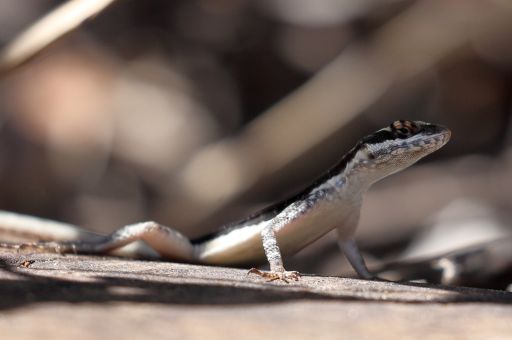12 hatchlings from five different clutches have emerged after 42 days of incubation
The main goal of this pilot ex situ breeding project is to protect this endemic species and preserve the biodiversity of the Balearic Islands
The first Pitiusan wall lizard hatchlings (Podarcis pityusensis) have been born as part of a pilot ex situ breeding project promoted by the Ministry of Agriculture, Fisheries and Natural Environment of the Balearic Government and Barcelona Zoo. A total of 12 hatchlings from five different clutches have emerged after an incubation period of 42 days. These represent the first ex situ breeding groups of the species. The project aims to establish three populations outside the natural habitat (two from Ibiza and one from Formentera) to ensure the conservation of this endemic species and preserve the region’s biodiversity. To this end, 17 healthy and genetically diverse specimens (10 from Ibiza and 7 from Formentera) were captured and transferred to the zoo last month.
TDB keeps you informed. Follow us on: Facebook, Twitter and Instagram
First Pitiusan Wall Lizard Hatchlings Born at Barcelona Zoo as Part of Conservation Project Led by the Balearic Government
Anna Torres, Director General of Natural Environment and Forest Management, stated that “initiatives like this allow us to work on the feasibility of repopulation efforts with this species. It is one of many actions the Government is promoting to fight against invasive snakes, which undoubtedly pose a serious threat to lizards.” This year, Torres added, “four refuges will be created across the Pityusic Islands to host lizards bred in captivity through this conservation project. These refuges will include safety measures to prevent access by invasive snakes and will provide all the resources needed for the lizards to thrive. They will serve as a reservoir to help conserve and protect the species.”
The newly hatched lizards have been identified by technical staff at Barcelona Zoo and, after confirming their good health, have been transferred to specially adapted terrariums for reptiles of their size in a controlled environment that ensures their well-being and development. At birth, the lizards weighed between 0.6 and 0.8 grams. Staff noted that the hatchlings were highly active and accepted food immediately. “This behavior indicates a good general health status and quick adaptation to their new surroundings,” said Tomàs Bosch, head of the Government’s Species Protection Service.
It is worth noting that this project is part of a collaboration agreement between the Ministry of Agriculture, Fisheries and Natural Environment and the Barcelona Zoo Foundation for the conservation of protected wildlife in the Balearic Islands, signed in 2024. This initiative reinforces both institutions’ commitment to preserving the region’s native fauna for future generations. It complements the ongoing ex situ breeding program for the Mallorcan midwife toad (Alytes muletensis), developed over several years by Barcelona Zoo in cooperation with the regional government, which has successfully created new wild populations of this endangered endemic amphibian.
In addition, the project involves scientific studies to deepen understanding of the species’ ecology, genetics, and conservation needs. Work is also being done to assess the feasibility of future reintroductions into the wild. Experts from the Spanish Herpetological Association (AHE) and the Center for Ecological Research and Forestry Applications (CREAF) are collaborating, alongside technicians from the Species Protection Service of the Balearic Government, Barcelona Zoo, and the Consortium for the Recovery of Wildlife of the Balearic Islands (COFIB).
The Pitiusan wall lizard is one of the most iconic species of the Pityusic Islands. However, the introduction of invasive species such as snakes threatens its survival. Due to this situation, in 2023, both lizard species found in the Balearic Islands—the Balearic lizard (Podarcis lilfordi) and the Pitiusan lizard—were included in the Balearic Catalogue of Threatened Species, classified as Vulnerable.
